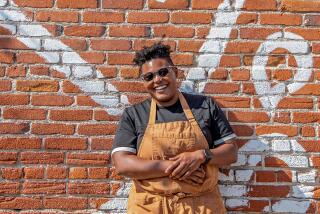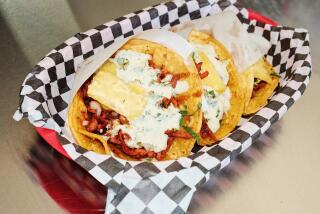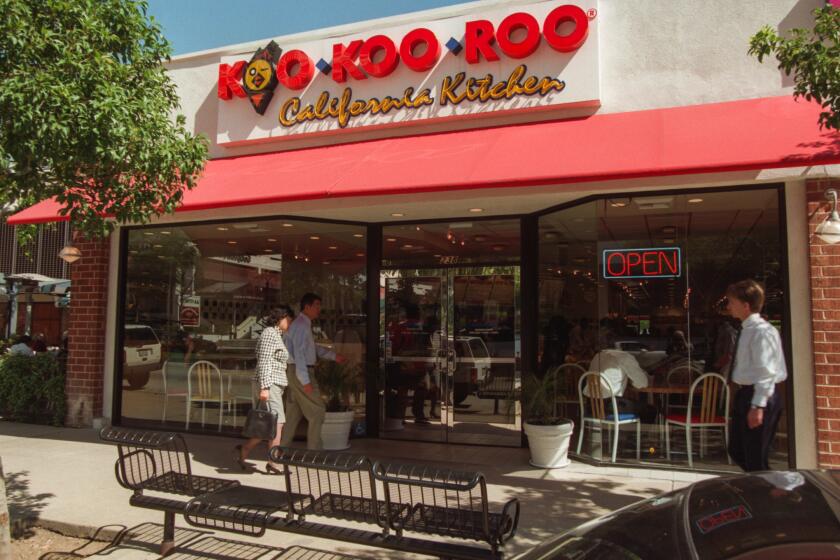Hungry? Slide into these DMs.
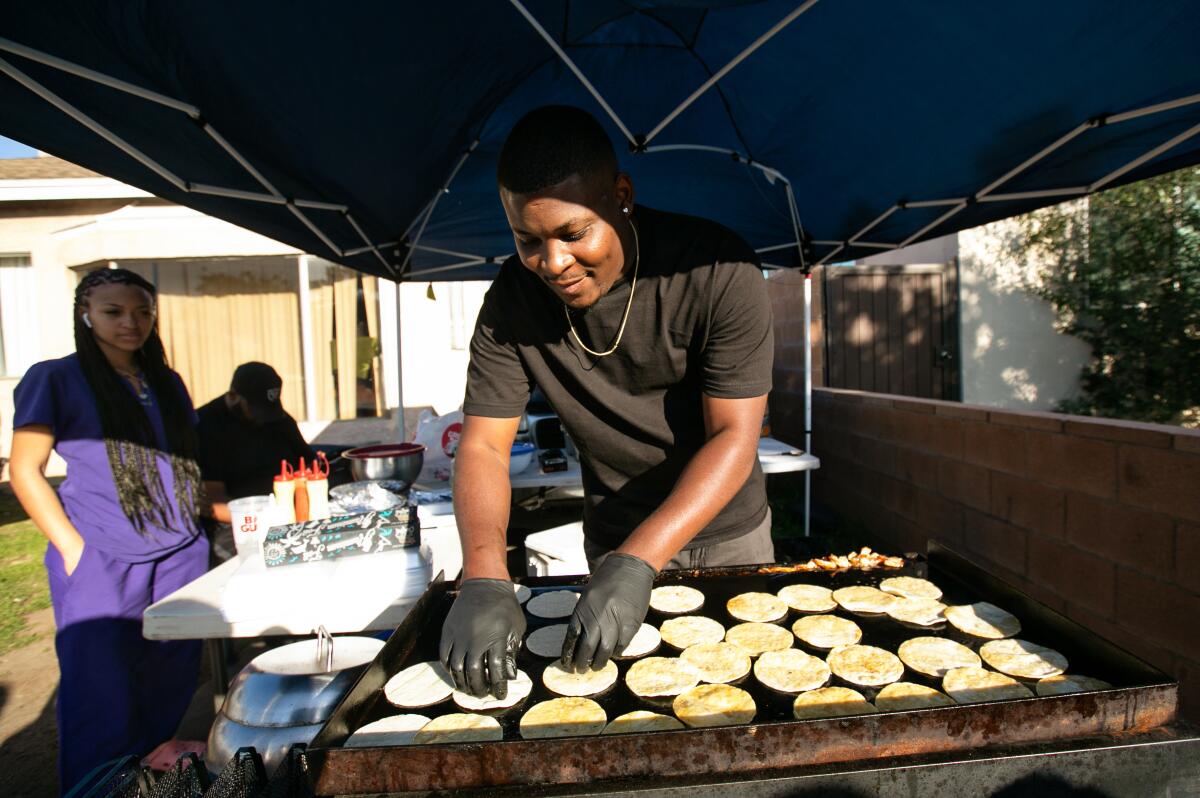
It’s a taco stand. Depending on the day of the week, it’s also a hot wings spot, a pasta joint or a super nacho specialist. But mostly, Munchie Madness is a social media restaurant that uses DMs like order slips.
Each morning Deon Steward posts a photo of the day’s menu on Instagram and Twitter. His 3,000 Instagram followers? All potential customers. As Steward points out, we eat with our eyes as much as anything. And social media is the greatest food hall our eyes have ever seen.
“Say you don’t know what you want for lunch, you’ll just jump on Instagram and start scrolling,” he said recently while making shrimp tacos in his driveway. “But on my page, you can actually order what you see.”
His Munchie Madness is part of an ever-expanding marketplace for food led by young entrepreneurs eager to cook for a living and home cooks bringing regional dishes like Guerrero-style pozole or memelas de frijol to Southern California’s food scene.
Here is how it works: If a Munchie Madness follower wants to order, say, the lobster and shrimp Alfredo, they send in an order via direct message. Then, at a pre-arranged time, they pull up to Steward’s house in Compton and pick up the food.
“I sell out no matter what,” Steward said. “On taco days, I don’t even take orders. It’s just DM me for the address and pull up. I make them on the spot because it’s impossible to keep up.”
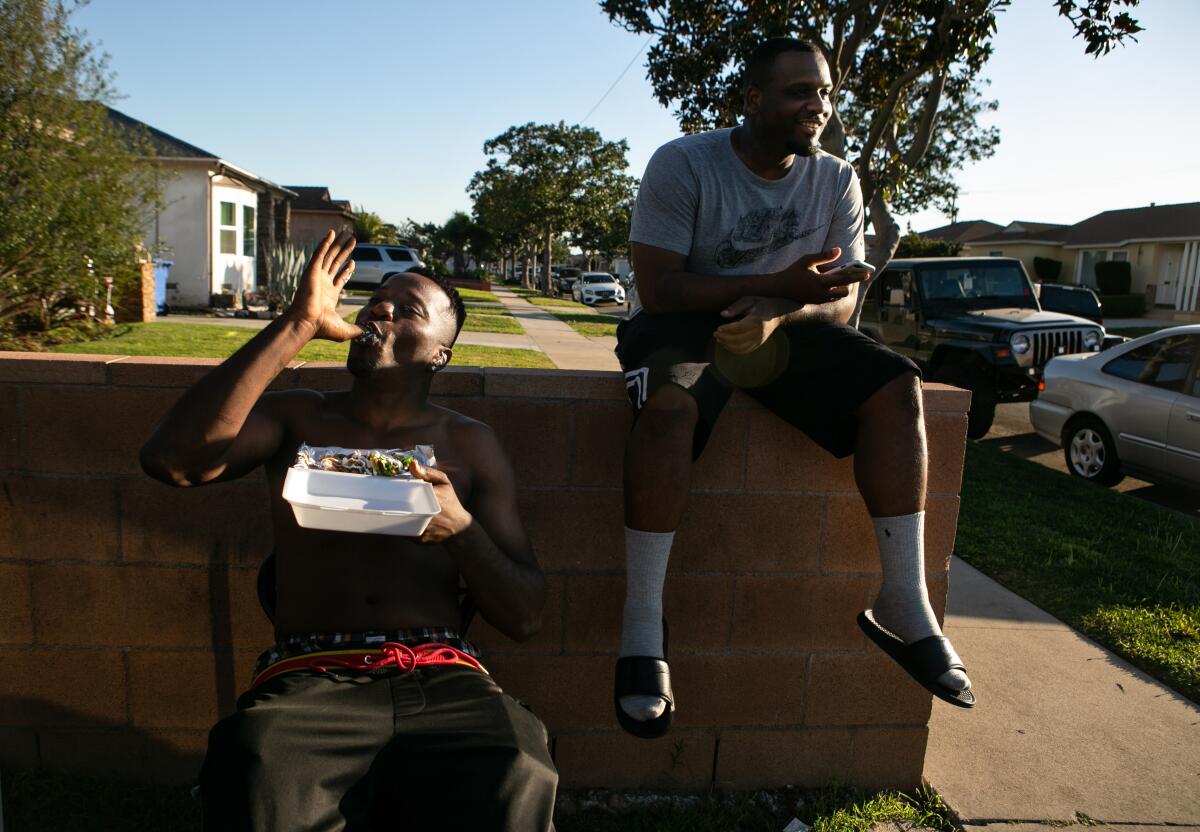
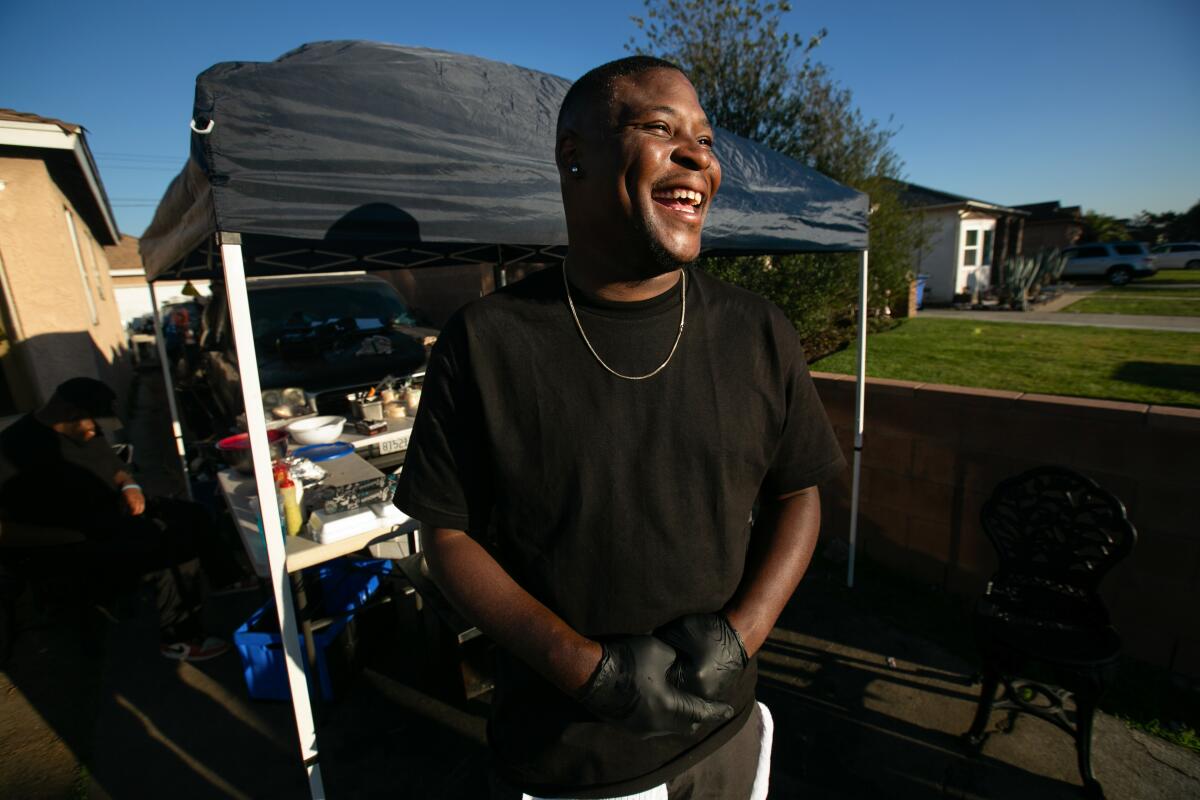
“Big-name chefs have the L.A. Times, L.A. Taco and Eater,” said Raymond Garcia, a social media account manager at Foodiemobbb Media, a network of Instagram accounts for restaurants and pop-ups with a combined haul of nearly a million followers; clients include Tacos Don Goyo, Big Al’s Pizzeria and Corner Joint. Garcia creates video and photo content for his clients. And he uses his own account, which has 194,000 followers, and the other accounts that he manages to help build followings.
He’s not an outlier. There are hundreds of similar networks, which work by creating “hands-in-pans”-style videos and photos for their clients’ social media pages and resharing across accounts. Some Instagram pages like First Date Guide and LAeats will charge clients to get their food featured on those pages.
“For home cooks, or even small mom-and-pop shops,” Garcia said over a mulita lunch at Tacos Don Goyo in Downey, “social media seems to be the way they are reaching customers much faster than wishing or hoping for a big journalism company to come in and show them some love.”
Almost as if to illustrate his point, Garcia walked into the tiny kitchen at Don Goyo’s and took some video of a gooey asada quesataco for the shop’s Instagram page. Within half an hour, Don Goyo’s had a line around the block.
“It started with Facebook groups,” Garcia said. “Now Instagram is it.”
Facebook’s Marketplace tool works similar to Instagram. At any given time of day you can easily find things you can’t find anywhere else, like a lady in Lynwood who will make you a dozen custom mermaid cupcakes for 18 bucks.
For home cooks like Naidelyn Gallardo, Facebook was a way to make money and have flexible hours after her retail business failed and she had her son.
“When the business went under, me and my partner decided to try selling tamales,” said Gallardo, who sells Veracruz-style tamales using Facebook’s Marketplace tool. They are made using a special precooked masa, filled with mole verde and wrapped in plantain leaves.
She started selling on Facebook’s community groups three years ago and quickly started turning a profit.
“We would do it only on weekends and holidays at first,” Gallardo said. “Things started to pick up through word of mouth and then once Marketplace came out it got really busy.”
For home cooks, or even small mom-and-pop shops, social media seems to be the way they are reaching customers much faster than wishing or hoping for a big journalism company to come in and show them some love.
— Raymond Garcia, social media account manager at Foodiemobbb Media
Gallardo said that on slow weeks she sells about 500 tamales from her house in Santa Ana. During Christmastime, when L.A.’s tamale season is at full masa, she and her partner crank out about 1,500 Veracruz-style tamales per week.
Daniel Torres started selling barbacoa de borrego on Facebook about a year ago, when he lost his carpentry business. Every Saturday and Sunday he sells about 350 pounds of steamed cooked sheep using a recipe he learned from his tia in the southern Mexican state of Morelos.
“People come from all over Los Angeles and Orange County all day long until it’s all gone,” Torres said. “It’s all thanks to Facebook. They all came here because they found me on the [Marketplace] thing.”
Torres said he was practically homeless before he found a way to sell his barbacoa. Now he only has to work a few days in construction during the week and steam his sheep on the weekends.
Social media has been huge for Steward. A year ago he was unemployed and dreaming of being a chef. He saw how other young black chefs like Taco Mell were leveraging Instagram to break into the business, and he realized he could do the same.
Social media, he said, “can have a huge impact. I’ve seen a lot of people start from nothing and create something much bigger than they ever imagined.”
“My first menu was nachos,” he said. “And we sold out within two hours.”
More to Read
Eat your way across L.A.
Get our weekly Tasting Notes newsletter for reviews, news and more.
You may occasionally receive promotional content from the Los Angeles Times.

